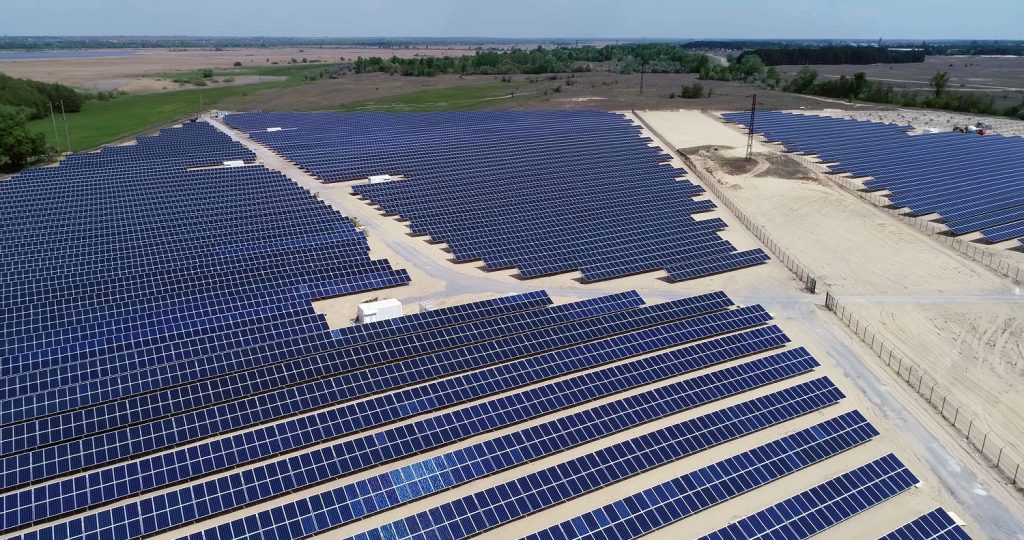
The African continent is blessed with abundant natural resources and a rich cultural heritage. These resources and cultures have the potential to drive sustainable industrial development and economic growth in Africa’s developing economies. Industrial development is a key driver of job creation, economic growth, and poverty reduction, and sustainable industrial development ensures that these benefits are achieved in a way that is inclusive, equitable, and environmentally friendly.
In recent years, we have seen many positive examples of sustainable industrial development in Africa. From renewable energy projects to sustainable manufacturing and supply chain management, African countries are taking steps to promote sustainable industrialization. The private sector is also starting to see the benefits of sustainable development and is increasingly investing in green technologies and sustainable practices. Below are a few innovative ways to spur sustainable transition of the African continent and drive people towards long lasting prosperity.
Fully Integrated Industrial Zones: Key Driver of Sustainable Progress in Africa
Fully integrated industrial zones are a key driver of sustainable progress in Africa. These zones are designed to bring together various industrial activities, such as manufacturing, logistics, and services, in a single location. This integration has several benefits for sustainable industrial development in Africa’s developing economies.
1. Improving efficiency and productivity:
Fully integrated zones help improve efficiency and productivity by reducing the costs and time associated with transportation and logistics. This can lead to increased competitiveness and exports of African products, boosting economic growth and job creation.
2. Providing opportunities for shared services and facilities:
These industrial zones provide opportunities for shared services and facilities, such as energy and water supply, waste management, and training. This can lead to cost savings and reduced environmental impact for the industries located in the zone.
3. Promote Inclusive growth and development:
Fully integrated industrial zones can also promote inclusive and equitable economic growth by providing opportunities for small and medium-sized enterprises (SMEs) and local communities to participate in the industrial value chain.
4. Models for sustainable development:
Lastly, these industrial zones can also serve as models for sustainable industrial development, showcasing best practices in energy efficiency, waste management, and other environmental and social sustainability measures.
Putting Communities at the Forefront
Community-led projects help to build ownership and buy-in for sustainable development initiatives. When local communities are actively involved in the planning, implementation, and management of sustainable development projects, they are more likely to take ownership of the initiative and to see it as a valuable investment in their own future.
By placing the needs and perspectives of local communities at the forefront, these initiatives are better able to address the specific challenges and opportunities of sustainable development in a given context.
Some of the advantages of building community led projects are:
- – Builds ownership and buy-in for sustainable development initiatives
- – Tailored to specific needs and context of the community
- – Empowers local communities to take ownership of their own sustainable development
- – Builds capacity and knowledge needed to promote sustainable development in the long-term
- – More inclusive and equitable approach to sustainable development
- – Increases effectiveness and impact of sustainable development initiatives.
Community-led projects are crucial for sustainable progress in Africa. By empowering local communities to take ownership of their own sustainable development, these initiatives are better able to respond to the unique challenges and opportunities of a given context, and to promote progress in a way that is inclusive, equitable, and sustainable.
Harnessing the strength of renewable energy
Renewable energy projects such as solar and wind power are crucial for promoting sustainable development in Africa. By reducing dependence on fossil fuels and decreasing carbon emissions, renewable energy can help to create a more sustainable energy system, improve energy security, reduce the impacts of climate change and promote inclusive and equitable economic growth.
- Firstly, renewable energy projects such as solar and wind power can help to diversify the energy mix and reduce dependence on fossil fuels, which can improve energy security and reduce the impact of volatile fossil fuel prices.
- Secondly, renewable energy can help to reduce carbon emissions and mitigate the impacts of climate change. This is particularly important in Africa, where many countries are highly vulnerable to the impacts of climate change, such as droughts, floods, and sea-level rise.
- Thirdly, renewable energy can also help to promote inclusive and equitable economic growth. By providing access to clean and reliable energy to rural and remote areas, renewable energy projects can help to improve living conditions and promote economic development.
For example, in Gabon, SOLEN, an independent power producing company, has entered into long term power purchase agreement with Republic of Gabon for development of solar power plants for 120 MWac capacity along with battery storage facility. For the first phase of this contract, SOLEN is developing a 30MW solar power plant with 8 MWH BESS facility which is connected to the state grid. The electricity generated by this power plant will be sold to the state-owned utility, providing clean and reliable energy to the local community.
The project is also intended to created jobs for local workers during the construction phase, and SOLEN is committed to regular maintenance of the power plant to ensure its optimal long-term performance.
Challenges Facing Sustainable Development in Africa
Africa is home to a wealth of natural resources, a growing population, and a dynamic and entrepreneurial youth population. These resources, along with the right policies, investments, and collaborations, can drive sustainable development in Africa and create a more prosperous and sustainable future for all. Significant room for improvement in term of infrastructure, integration, and accessibility is present.
With the growth of education and awareness campaigns, and the increasing availability of training and resources, it is becoming increasingly possible for communities, governments, and businesses to learn about and adopt sustainable development practices. Similarly, public-private partnerships and investment in infrastructure are helping to drive economic growth and sustainable development in Africa. With the right policies, investments, and collaborations, Africa has the potential to harness its resources and human potential to create a more prosperous and sustainable future for all.
Interested to learn more about ARISE IIP’s public-private partnerships?

